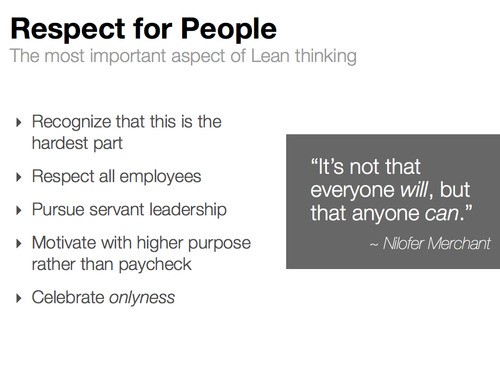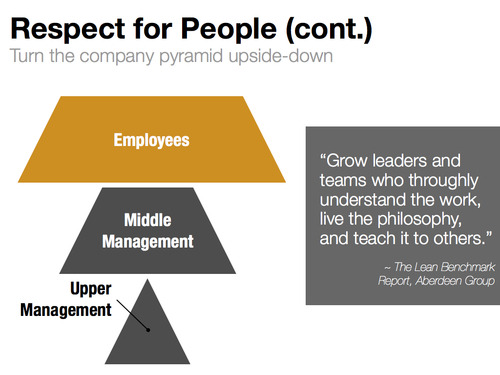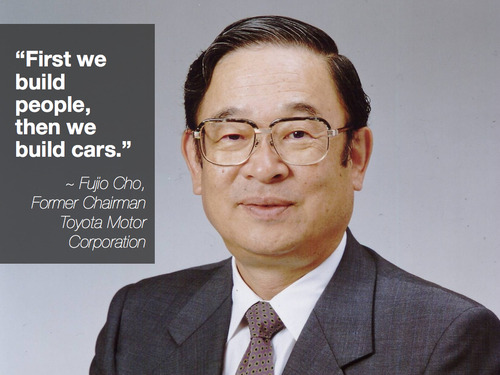I’ve long been an advocate for Lean thinking with my clients. Lean is a strategy for continuously improving the delivery of value to customers. It is concerned with revamping processes to improve flow and remove waste. The application of Lean concepts has helped scores of organizations improve customer value and deliver a better experience.
Of all the core concepts in Lean, I’ve come to believe that “respect for people” is the foundation. It is the most important aspect, leading to both improved results and improvements that are sustained over the long term.
We know that employees seek:
- empowerment to make decisions
- a degree of autonomy
- opportunities for growth and development
- candid feedback
- transparency and openness
- support and respect
- purpose and meaning
- shared vision
- desirable future
- sense of progress
- opportunities to serve the greater good
While practicing true respect for people is the most important aspect of Lean thinking, it is also the most difficult. It involves leadership, leadership development, change management and communication.
Practicing respect for people means truly respecting each person and recognizing and celebrating onlyness. Onlyness is a term recently coined by Nilofer Merchant. “Onlyness is that thing that only that one individual can bring to a situation. It includes the journey and passions of each human. Onlyness is fundamentally about honoring each person.”
Leaders who embrace Lean practice servant leadership and motivate employees with a higher purpose rather than a paycheck.

There are tremendous benefits associated with progress in this aspect of Lean thinking. “Respect for people” leads to a more engaged workforce and a culture of continuous improvement.

According the the most recent Employee Engagement Benchmark Study by the Temkin Group:
- Companies that are customer experience leaders have 2.5 times as many highly engaged employees as do customer experience laggards.
- Highly engaged employees are:
- 480% more committed to company success.
- 250% more likely to do something positive for the company that’s not expected of them.
- 250% more likely to recommend an improvement.
- 370% more likely to encourage a friend or relative to apply for a job.

This quotation from Fujio Cho, former chairman of Toyota, is one of my favorites. “First we build people, then we build cars.” It is a concise statement of Lean philosophy.
The lessons learned by thousands of Lean practitioners are clear, improving businesses and improving processes starts with people. Because this is the hardest aspect it is often overlooked or minimized as greater emphasis is placed on value stream mapping or similar tactics.
As you begin or continue your journey to improve your organization—to make it more efficient or more customer-focused—where will you focus? “Respect for people” makes all the difference.



